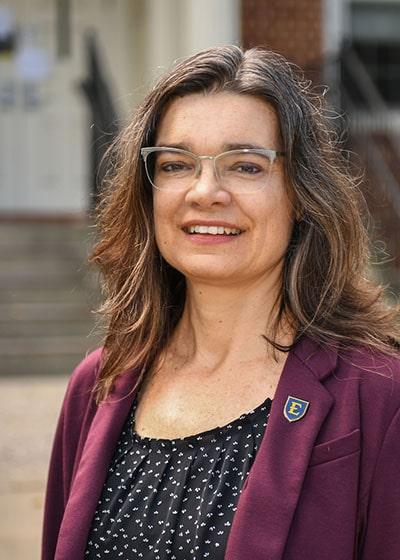JOHNSON CITY – Dr. Trena Paulus of East Tennessee State University recently spent a few days in Austria as a visiting researcher in the doctoral college #OrganizingtheDigital at the University of Innsbruck.
This doctoral college, created in 2018, features faculty researchers and Ph.D. students from the management program and other disciplines around campus. The aim of the doctoral school and its grounding in organization theory, media and communications studies, consumer culture theory, and labor market and general management theories is to bridge and transcend multiple digital phenomena in society. The emphasis on digital relations, digital publics and digital societies represents its transversal perspective on digital dynamics.

The doctoral college takes a multi-method, interdisciplinary lens and advances conceptual research; experimental, qualitative and interpretive studies; and related quantifications and network analyses of digital texts, visuals and behavioral patterns of digital relations, publics and societies.
Every winter term, #OrganizingtheDigital invites researchers with particular knowledge and expertise in digital phenomena for a short methods course.
This year, Paulus was the featured scholar and facilitated an intensive, three-day digital research methods course for a small cohort of Ph.D. students on “Analyzing Online Conversations: A Research Framework.” She also gave a public lecture, “Creating Digital Qualitative Research Workflows.”
Paulus is a professor in the Research Division at the Quillen College of Medicine. She specializes in the area of methodological innovation in research design, specifically in the use of new technologies and adaptation of language-based analysis methods.
As a 2022-23 Fulbright Distinguished Scholar in Humanities and Social Sciences, Paulus will spend six months in Poznan, Poland, in 2023. While there, she will work with the Adam Mickiewicz University Faculty of English to identify qualitative research methods relevant to that community and what methodological and technology innovations may still be needed.
 Stout Drive Road Closure
Stout Drive Road Closure